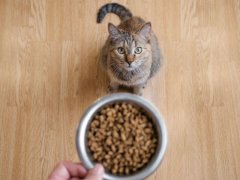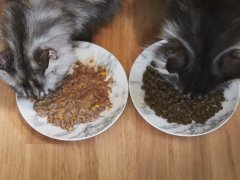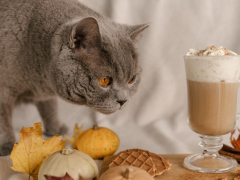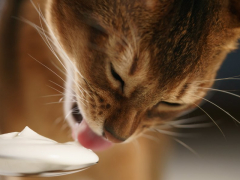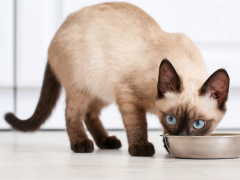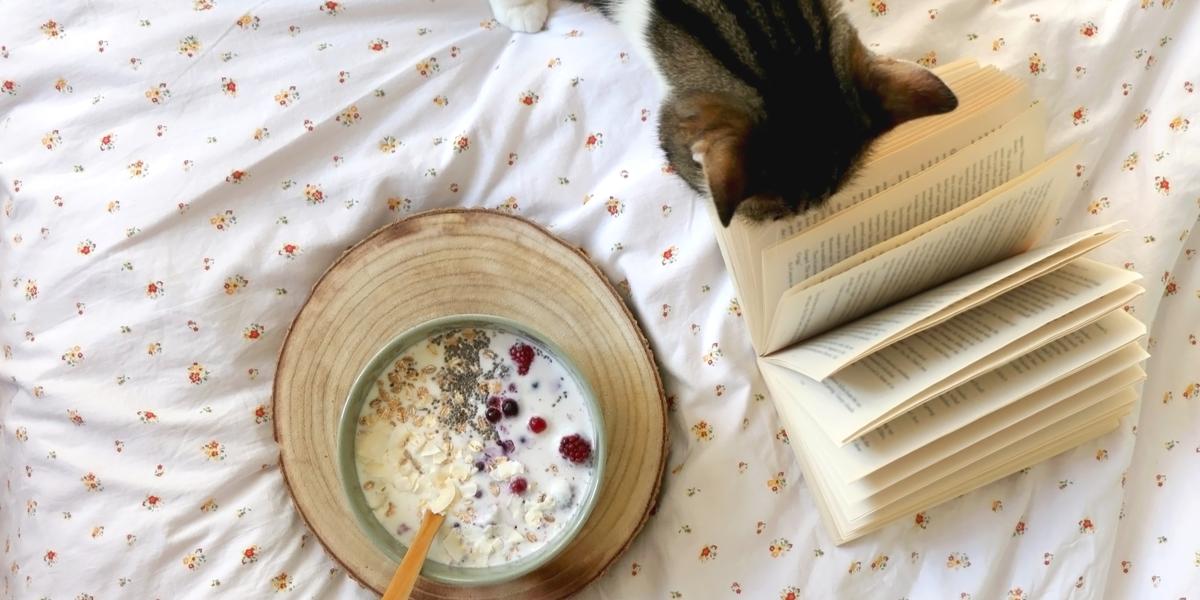
Whether you eat your oatmeal with brown sugar for breakfast or prefer oatmeal cookies, oatmeal is one of those popular, healthy, and versatile human foods. But can cats eat oatmeal?
If you’re wondering about giving your cat oatmeal or thinking about the health benefits for our feline friends, you can be assured that oatmeal is perfectly safe for cats. It is not a necessary addition to their usual cat food, but oats can be given to cats either cooked or raw, with just a few things to consider if you wish to do so. Read on for more information!
Is Oatmeal Good for Cats?
Cats’ digestive system is designed to digest meat, and so although cats may eat oats, they may not gain all the health benefits that we do from this healthy food. Cat foods are usually high in protein and low in carbs, so foods high in carbohydrates should be avoided as this can lead to a higher calorie intake than is necessary.
Oatmeal is actually fairly high in protein and fats, making it one of the more suitable human foods for cats. The fats in oatmeal also contain linoleic acid and amino acids that are good for healthy skin and coat.
Oatmeal has a good dietary fiber content, which can be good for the digestive tract, preventing constipation, but too much can overwhelm the gut and cause digestive issues. Cats will be able to absorb small amounts of vitamins, minerals, and antioxidants from oats.
Also Read: 9 Safe & Healthy Human Foods Cats Can Eat
How Much Oatmeal Can a Cat Eat?
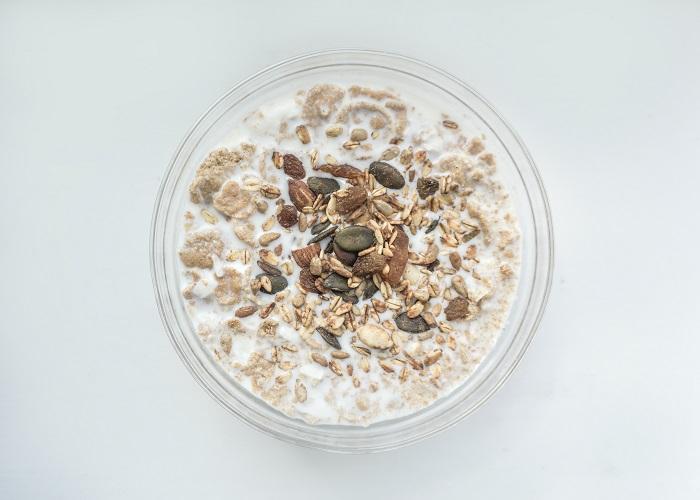
A small portion of oatmeal is the recommended way to feed cats oats if you wish to. Cat foods should be mostly meat-based, and foodstuffs like oats should only be given in small quantities (a tablespoon is a reasonable amount for a cat) to avoid health issues.
How Often Can a Cat Eat Oatmeal?
Oats should only really be given as an occasional treat, as eating them too often and as the main part of their diet can cause digestive issues and an imbalanced diet. Commercial cat food should be the major part of your cat’s diet, with cat treats or safe human foods as little extras.
Do Cats Like the Taste of Oatmeal?
Cats are mostly drawn to meaty and fishy tastes but are known to experiment with new tastes and textures. If you want to try adding oatmeal to your cat’s diet, try a small amount of uncooked oats on their wet food, plain oatmeal cooked in water, or some oat tea.
Is Oatmeal Used in Commercial Cat Food?
Yes, some commercial cat foods do contain oats. They as used as a source of carbohydrates and fiber, as well as some health benefits such as vitamin b6, antioxidants, and essential amino acids. They are only present in small quantities, and never as the main ingredient of the cat food.
Is Oatmeal Bad for Cats?
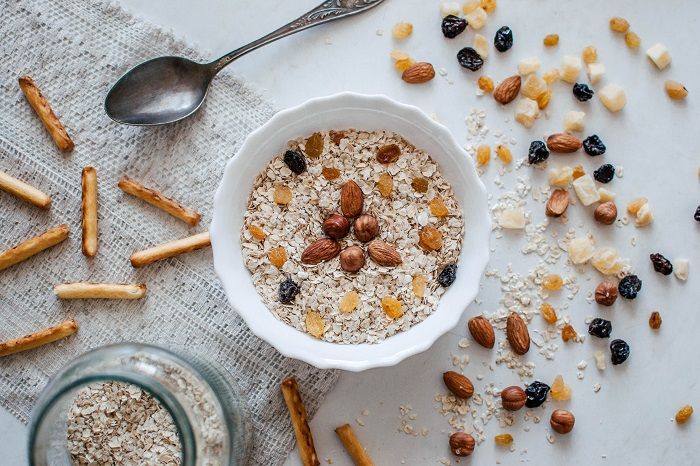
Oats are safe for cats, both as raw oats and as cooked oatmeal. However, there are some things to watch for before you give oatmeal to your feline friend.
Oatmeal Cooked in Milk
Many cats are lactose intolerant, as they lack the enzymes necessary to digest milk. Cat oatmeal should only ever be cooked in water.
Oatmeal Cookies
These are often buttery and fatty and can have extras added to them which are not suitable for cats. Oatmeal raisin cookies should always be avoided as raisins are toxic to cats. Apple cinnamon oatmeal cookies should also never be fed to cats.
Digestive Issues
Too much oatmeal can overload your cat’s digestive system, leading to discomfort, vomiting, or diarrhea. Always feed oatmeal in a small portion, especially uncooked oatmeal.
